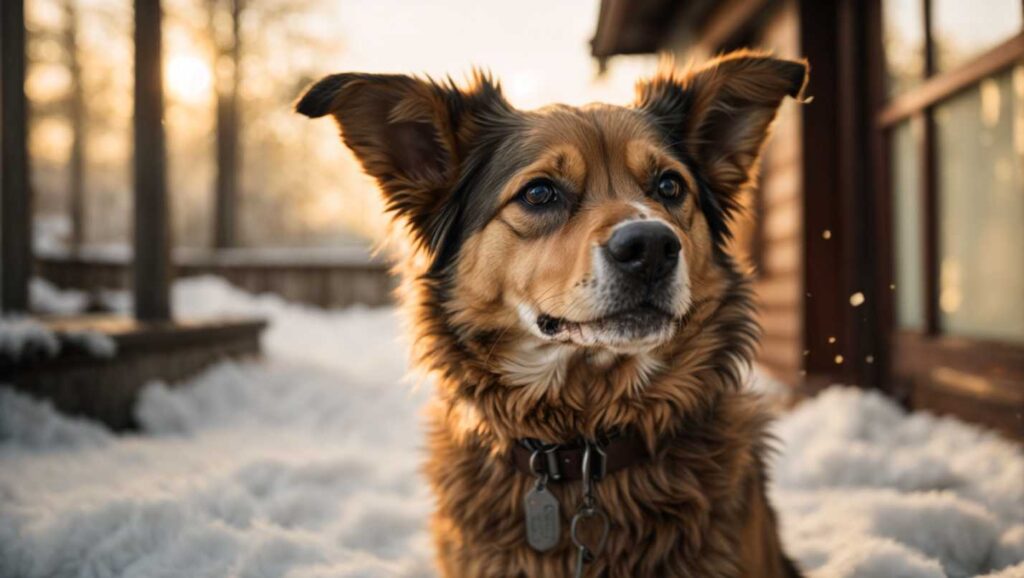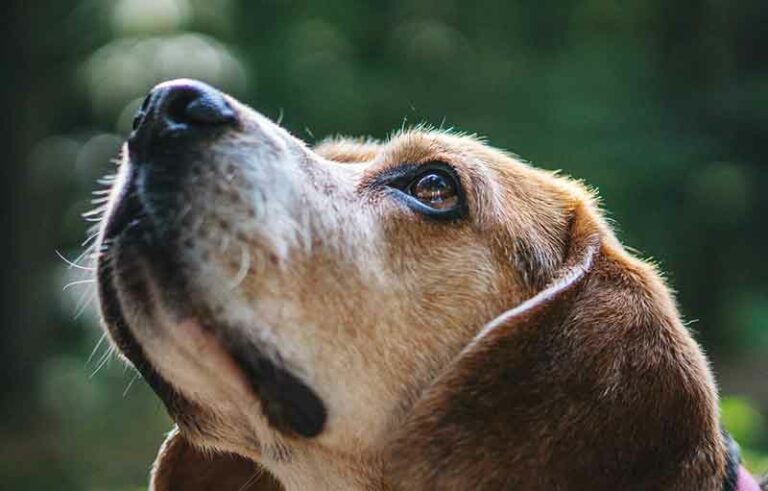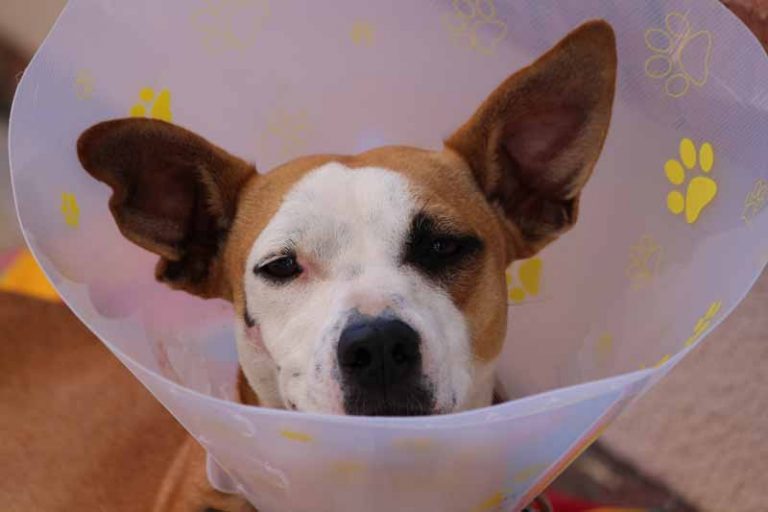Why Is My Dog Dry Heaving? [What To Do? Causes + Tips]
Have you ever experienced a vomit-like feeling without any actual vomit coming up? This is what we identify as dry heaving. Most dogs ask us ‘Why is my dog dry heaving?’ being panicked when they see it. Dry heaving is not a concern limited to humans; dogs can also experience this for several reasons.
If your pet dog shows signs of throwing up without actually throwing up, you might get worried. Coughing, gagging, and labored breathing could all be signs of dry heaving. Therefore, if you notice these symptoms, it is essential to be vigilant and find out the cause. In this article, we will be focusing on dry heaving in dogs.
What causes dry heaving in dogs? There is no one fixed reason behind dry heaving; many factors could cause it, and some of them are nausea, rapid eating, obstructions of the gastrointestinal tract, blocks of the throat, respiratory issues, and allergies. The causes behind dry heaving are not always serious.
However, this is not a concern you can take lightly because sometimes dry heaving is caused by severe reasons. The faster you act, the better you can avoid the potential threats that may happen.
When your pet dog indicates unusual behavior, it will undeniably make you concerned. You can address most of such concerns effectively if you are attentive enough. Dry heaving can often be seen among dogs.
Every dog parent should have prior knowledge on this matter so that you can help your furry friend to overcome it. Keep reading to know the causes behind dry heaving in dogs, whether it is a serious concern, and what you can do to avoid it.
What causes dry heaving in dogs? [Why is my dog dry heaving]
As mentioned above, dry heaving is a condition where your dog’s body attempts to throw up without any vomiting. Both minor and severe factors can cause dry heaving in dogs. Below are some of the most common reasons why dogs dry heave.
- Eating food too quickly
Dogs love to eat; in fact, sometimes, they can be greedy. Suppose your dog devours food too fast; that could cause dry heaving. When dogs eat food at a rapid pace, they find it hard to slide the food through the throat, which can lead to a vomiting-like feeling.
Therefore, it is essential to give the correct amount of food to the dog and train them to eat appropriately from a young age. Remember that this is not the only reason behind dry heaving. However, if your dog is a fast eater, there are many chances that it could face dry heaving.
- Kennel cough
Bordetella, famously known as kennel cough, is another common reason for dry heaving in dogs. In this condition, a dog’s respiratory system gets attacked by various bacteria and viruses. Kennel cough often leads to symptoms of dry heaving, including coughing and forceful breathing.
Usually, this is not a threatening condition for dogs, but it could be critical because it is a contagious disease. So, if you leave the dog untreated, it will spread fast and develop into more serious issues such as pneumonia.
- Obstructions in the gastrointestinal tract
The gastrointestinal tract, or the GI tract, helps to travel the food within organs while digesting and absorbing the relevant nutrients. As we know, dogs love to chew things.
Imagine a situation where your dog chews something unwanted and gets stuck in its throat or GI tract; this could create blockages, interrupting the flow of consumed food and liquids. When such obstructions occur in the GI tract, dogs attempt to evict it through dry heaving.
- Bloating
Bloating is also another cause of dry heaving in dogs. Bloating is a condition that results from digestive issues. When your dog is experiencing bloating, it will feel uncomfortable due to the excess intestinal gas, and they try to pass it through dry heaving.
Therefore, if you notice constant dry heaving in your dog, they may have bloated stomachs. You must be extra vigilant if you have a deep-chested dog because they are often vulnerable to bloating. Moreover, bloating requires fast treatment; if not, it could be fatal.
- Food allergies
Dogs might munch on anything you give them, but they can be allergic to particular foods. For instance, grains, chocolate, and some dairy products often function as allergens for dogs.
If they mistakenly consume a considerable amount of food that is allergic to them, it will create digestive problems, which leads to dry heaving.
Read – My dog ate gum; What will happen?
- Tumors
There can be instances where dry heaving is caused by serious issues such as tumors. If your dog has a tumor related to the respiratory system, that will cause dry heaving.
However, dry heaving is not the only symptom of tumors. If the dog is experiencing a severe condition such as a tumor, it will also indicate continuous dry cough, lethargy, loss of appetite, and weight loss.
How long does a dog’s dry heaving last?

It is evident that both threatening and nonthreatening reasons can cause dry heaving in dogs. How long does a dog’s dry heaving last? Does it last within a short period, or does it last for a long time? It is hard to answer how long a dog will dry heave precisely; this could vary from one context to the other.
If a less serious concern causes dry heaving, it is temporary and will likely fade away soon. However, it is always better to get veterinary instructions if your dog is dry heaving, especially for an extended period, because if the dog is facing dry heaving due to a severe issue, it could become fatal in a short time.
Is dog dry heaving serious? [Should I be worried when my dog is dry heaving]
Should you be worried about your dog’s dry heaving? Not all the time, but it is mandatory to be vigilant and find out the reason for dry heaving. As we comprehensively discussed, dogs face dry heaving for different reasons; while some are fatal, some are not.
Dry heaving caused by food allergies and nausea have complications, but they are not life-threatening. If dry heaving is caused by bloating, respiratory problems and blockages in the GI tract can potentially have severe consequences.
Therefore, it is crucial to determine why your dog is dry-heaving. Getting the diagnosis done by a veterinarian is advisable because, without the proper knowledge and experience, some will find it hard to determine the root cause.
If your dog dry heave for a severe issue, the more time you take, the worse it will get. So it is better to take professional advice and sort out the doubts.
What should I do if my dog is dry heaving?
When you have a pet dog, you have to anticipate different challenges. On a positive note, if you act correctly, you can mitigate them. If your dog is experiencing dry heaving, how should you act?
What actions can you take to help the dog? As said, dry heaving results from many causes; still, there are effective mechanisms that you can take at home to help the dog cope with it.
If you notice dry heaving in dogs, first and foremost, you must closely examine your dog and attempt to find out why they dry heave. It might not be as easy as it sounds. However, if you see your dog dry heaving after meals, it could be because of a food allergy or fast eating.
Especially if your dog is healthy and doesn’t show any symptoms other than dry heaving, a less severe issue might have caused it. If you suspect that fast eating causes dry heaving, you can reduce the amount of food you give your dog in one bite and slow the eating pace.
It is also essential not to make the dog tired after meals. Do not let them play or make them exercise soon after eating; let them stay calm for at least an hour. If you think the reason for dry heaving is a food allergy, you can change the dog’s diet.
Do a background check and see if anything unwanted has been added to the dog’s meal; if so, avoid giving that food. If neither of these mechanisms works, that indicates a more extreme reason causes dry heaving. In such cases, the wisest thing to do is to take the dog to a veterinarian.
You can also take certain precautions to ensure that the dog will not get affected by dry heaving. Not all causes of dry heaving can be prevented, but some can be controlled through proper actions.
For instance, you can vaccinate the dog for kennel cough. Moreover, you can do occasional veterinary checkups to spot if something is wrong with your dog at the earliest stages.
Final thoughts
Dry heaving makes dogs feel like they want to vomit, but it does not cause actual vomiting. This motion results from many factors, starting from minor ones like fast eating.
However, if your dog is dry heaving, you cannot always assume a minor reason causes it because it can also result from fatal causes.
You must pay close attention to your dog‘s usual behavior, and if you feel like something is wrong, do not hesitate to get professional help. That way, you can avoid possible negative consequences.








![Can Dogs Get Cavities? Yes [What To Do & Cost To Fix]](https://jackrussellowner.com/wp-content/uploads/2023/11/Can-Dogs-Get-Cavities-Yes-What-To-Do-Cost-To-Fix-768x575.jpg)